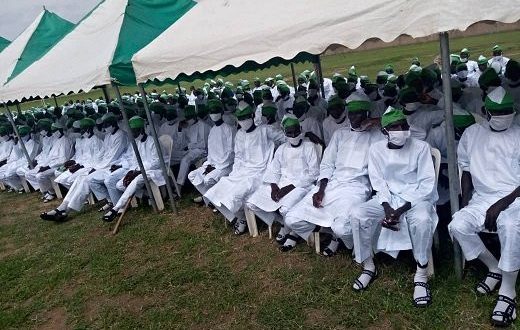National Issues
Challenging Stigmatization: The Repentant Boko Haram Fighters -By Mohammed Bala
Stigmatizing individuals who have genuinely renounced their involvement with Boko Haram is counterproductive and hinders efforts towards building a peaceful society. The rehabilitation programs implemented by the Nigerian government provide significant opportunities for repentant fighters to reintegrate into society. However, it is the responsibility of society at large to challenge their biases, provide support, and facilitate their successful reintegration.

Boko Haram, the extremist group based in Nigeria, has caused immense damage and suffering in the country through its brutal acts of violence. For years, their activities have terrorized the population, leading to countless deaths and displacements. The Nigerian government initiated a rehabilitation program to reintegrate those who voluntarily renounced their membership or involvement with Boko Haram.
However, the reintegration process faced significant challenges due to the deep-rooted stigma associated with the group.
Stigma refers to the negative labeling, marginalization, or discrimination faced by individuals or groups based on perceived traits, behaviors, or associations. Stigmatization often isolates and dehumanizes individuals, impeding their ability to reintegrate into society successfully. It is crucial to recognize that stigmatizing individuals who have abandoned extremist groups can perpetuate a cycle of violence and radicalization.
The Nigerian government, acknowledging the importance of addressing the root causes of extremism, implemented a comprehensive rehabilitation program for repentant Boko Haram fighters. The program aims to provide counseling, education, vocational training, psychosocial support, and community integration opportunities. The goal is to empower individuals to become productive members of society, ultimately promoting peace and countering the extremist ideology.
Despite the government’s efforts, the stigmatization against repentant Boko Haram fighters remains a significant hurdle towards their successful reintegration. Society often marginalizes these individuals, fearing they may still have hidden extremist sympathies or pose a threat to their communities. This unwarranted fear can perpetuate a cycle of violence and hinder efforts to build a peaceful, cohesive society.
It is crucial to understand that the rehabilitation process can lead to genuine remorse, radical transformation, and an opportunity to reintegrate into society. However, this is only possible through collective support and empathy. It is essential to provide them with acceptance, understanding, and opportunities for personal growth and development.
Education plays a pivotal role in dispelling misconceptions surrounding repentant fighters. By increasing awareness and understanding, society can challenge stigmatization and create an environment that encourages these individuals to rebuild their lives positively. Communities and educational institutions can organize workshops, seminars, and awareness campaigns to foster empathy and educate the public about the rehabilitative process.
Successful reintegration includes both the repentant fighters and the communities they return to. It is critical to involve community leaders, religious figures, and local organizations in the rehabilitation process, promoting an environment of acceptance and understanding. By facilitating dialogue and shared experiences, communities can rebuild trust and work towards preventing radicalization.
Stigmatizing individuals who have genuinely renounced their involvement with Boko Haram is counterproductive and hinders efforts towards building a peaceful society. The rehabilitation programs implemented by the Nigerian government provide significant opportunities for repentant fighters to reintegrate into society. However, it is the responsibility of society at large to challenge their biases, provide support, and facilitate their successful reintegration. By doing so, we not only help the repentant fighters rebuild their lives but also contribute to preventing further radicalization and fostering a peaceful future for Nigeria.
Mohammed Bala student of Mass Communication department Borno State University, Maiduguri


















